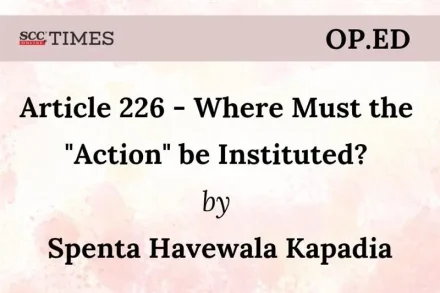
Article 226 – Where Must the “Action” be Instituted?
by Spenta Havewala Kapadia*

by Spenta Havewala Kapadia*
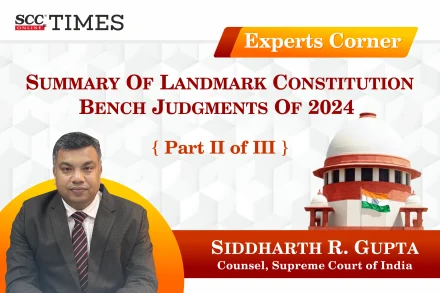
by Siddharth R. Gupta* and Uddaish Palya**
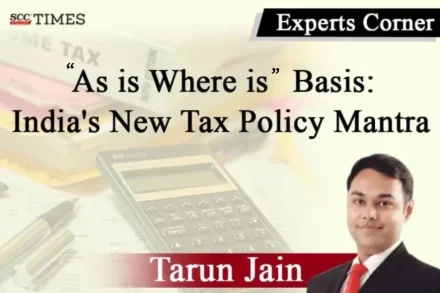
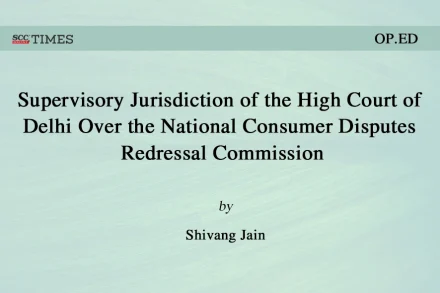
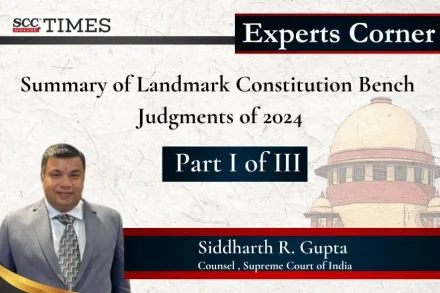
by Siddharth R. Gupta* and Aman Agarwal**
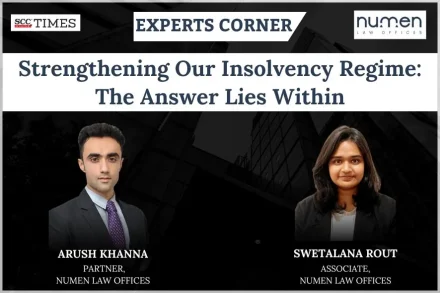
by Arush Khanna* and Swetalana Rout**
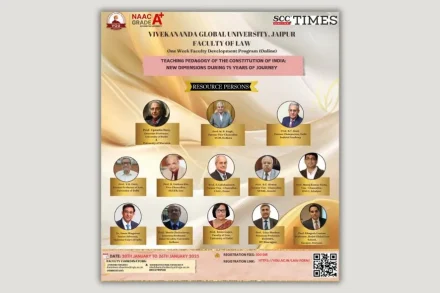
The Faculty of Law, Vivekananda Global University, Jaipur
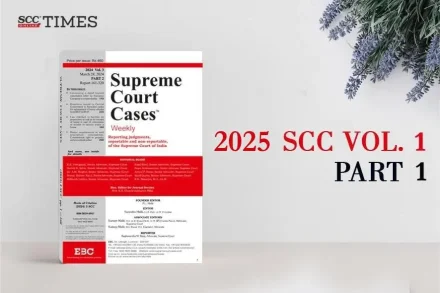
Constitution of India — Arts. 14 to 16, 341 and 342 — Reservation
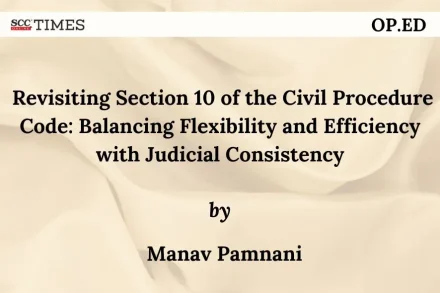
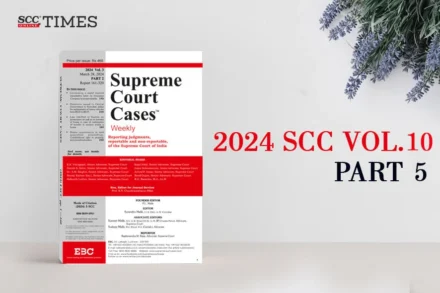
Special leave petition – Exemption from filing the certified copy of the impugned order of the High Court
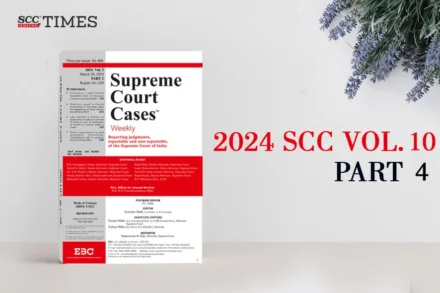
Arbitration and Conciliation Act, 1996 — Ss. 11(6) and 37: Setting aside of order setting aside award, by Court exercising jurisdiction under
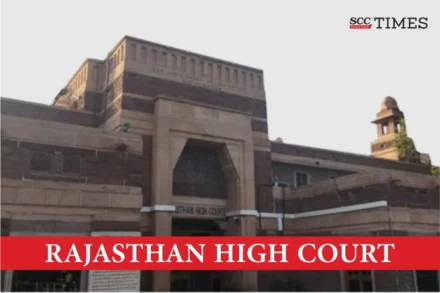
“Right to health is an essential component of human dignity, and it is the responsibility of the government to ensure that this right is protected and promoted for all individuals who are citizens of the nation.”
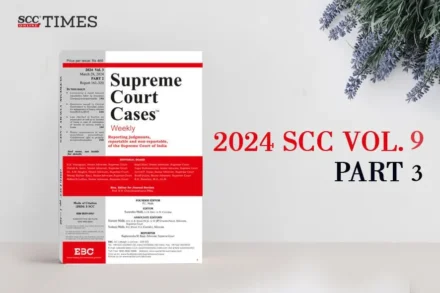
Arbitration Act, 1940 — S. 29 — Interest on interest or compound interest: Post award interest on interest awarded is not grantable
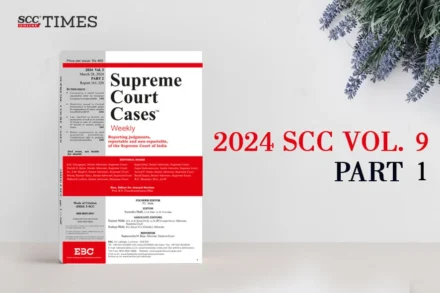
Civil Procedure Code, 1908 — Or. 7 R. 11(d) — Suit or application whether barred by limitation — When no limitation provided for — Power
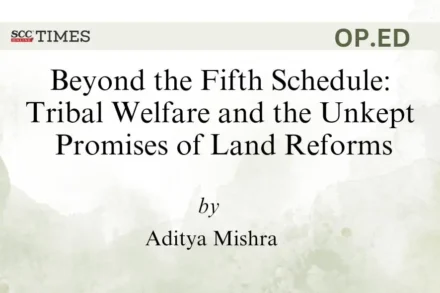
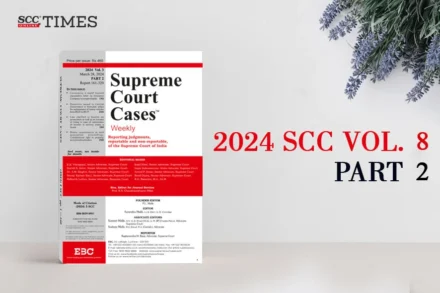
Constitution of India — Art. 21 and Pt. III — Bail — Power of constitutional courts to grant — Scope of: Restrictive bail provision
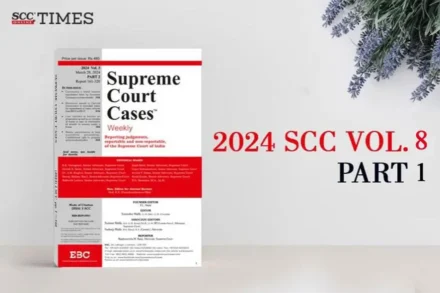
Civil Procedure Code, 1908 — S. 11 — Res judicata — Applicability between co-defendants — Conditions
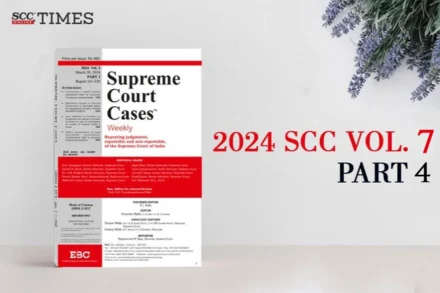
Constitution of India — Art. 141 — Decision on question of sentence: Decision on question of sentence can never be regarded as
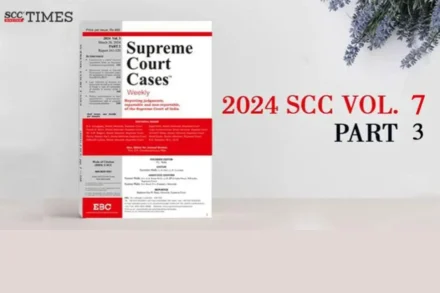
Constitution of India — Arts. 141 and 142 — What is binding — “Law declared by Supreme Court” — Doctrine of merger
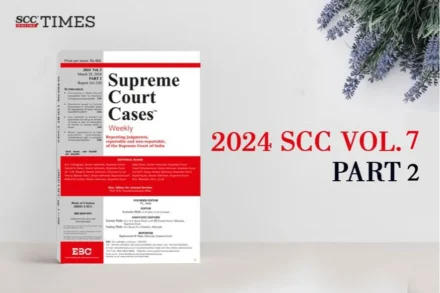
Arbitration and Conciliation Act, 1996 — S. 34(3): Limitation period under S. 34(3) for filing petition challenging arbitral award is considered